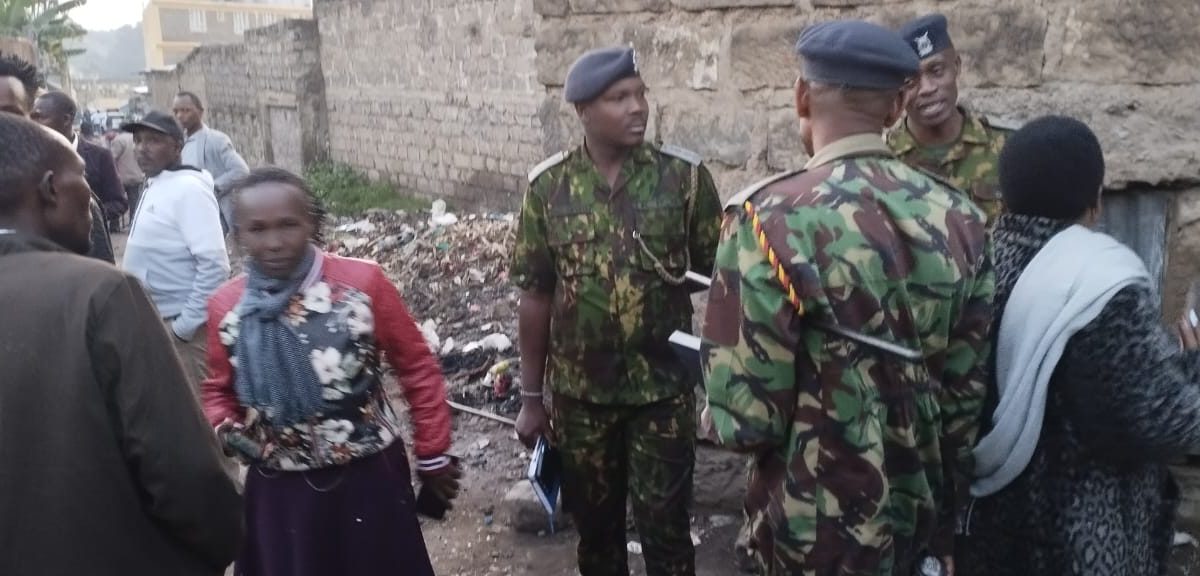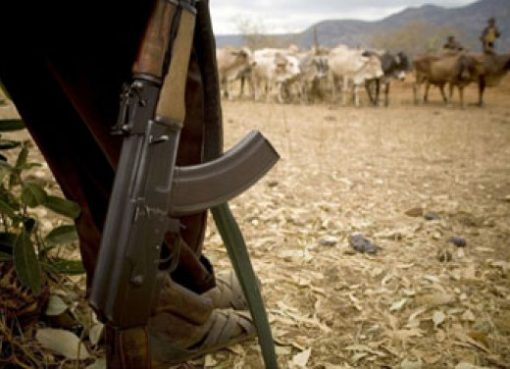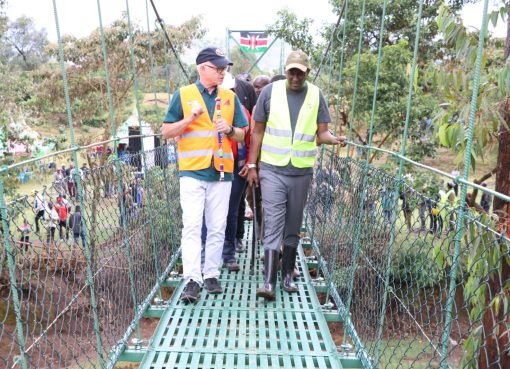Gender Based Violence (GBV) is unacceptable because it affects a particular gender in a disproportionate degree that violates the rights of women, men and children in a society.
The violence can be in several forms that include physical, emotional, psychological, sexual, harmful culture and social violence.
For many years, Female Genital Mutilation (FGM) and forced early marriages have been the most prevalent form of GBV reported among the girls in the Maa community.
Nevertheless, in the recent past, cases of wife battering have been on the rise where in some cases, the woman has been beaten to death while others are left fighting for their lives in hospitals.
In a recent case reported at Olpopong area, Narok town, a man killed his wife in the wee hours of the night following domestic wrangles.
The body of the middle-aged woman, only identified as Mwikali, was found on a wooden bed with the mattress soaked in blood.
“A fresh stab wound was observed at the right side of the neck and the mouth was covered with blood clots and a knife with blood stains was recovered placed on top of a ‘jiko’,” said Riko Ngare, the county police commander.
The police boss said preliminary investigations show that the door was broken from outside and neighbours confirmed that they heard a confrontation between the two at night.
Early this week, a 27-year-old woman escaped death by a whisker after she was seriously assaulted by her husband at their home in Mong’are estate, Narok town.
Their 12-year-old daughter reported the matter to the police saying her mother was assaulted with a fork jembe, while she had gone to church.
“When the police arrived at the home, they found that the victim had already been rushed by neighbours to hospital and the suspect had fled,” said the police boss.
He added that the house appeared disorganized with household items scattered all over with blood stains on the floor, seat and table.
One broken wooden jembe handle with blood stains, suspected to be the weapon used by the suspect, was recovered at the scene and collected as an exhibit.
When the police visited the victim at the hospital, she had been admitted in serious condition after sustaining serious head injuries, fractured right arm and bruises all over the body.
Following the incidents, the police boss called on couples facing challenges in their marriages to seek guidance and counselling from professionals, close friends or religious institutions where they will be advised on the best way to go.
He condemned the incident saying the children are the ones who suffer most when their parents fight.
In an interview with the Narok County Director of Gender Ms. Agnes Ngeno, she revealed that GBV incidents are common in the county but mostly go unreported.
“Many women are suffering in silence even after undergoing thorough beating from their husbands. They believe that reporting their husbands to the authorities will break their marriages and their husbands will go for other women,” she said.
The cases that are mostly reported, she said, are those that turn tragic as many women choose to suffer in silence.
She however pointed out that few cases of women beating their husbands are rarely reported in the county.
The director urged the county government to build a safe house and employ care givers, where victims of GBV can be hosted as they undergo counselling and reconciliation back to their families.
“The safe house would be a one stop center with professional counselors, religious leaders, legal practitioners, women and Maa council of elders’ representatives; who will help the victim reclaim her lost glory,” she said.
The director advised couples who are suffering in their marriages and have sought counsel from relevant people but still continue to suffer, to separate before a tragedy occurs.
“Gone are the days we used to encourage women to be patient with their cruel husbands. I advise them to walk out of their marriage if they have sought the relevant counsel and their marriages still do not work,” he said.
Narok County Commissioner Kipkech Lotiatia attributed GBV to alcoholism saying the incidents reported in the county are those where the culprits were drunk at the time they committed the offences.
He said the county security team in collaboration with elders, women leaders, nyumba kumi representatives and religious leaders have put in place a strategy to curb illicit brewing and excessive drinking.
“One of the strategies we have put in place is impromptu crackdowns in all premises selling alcohol, holding sensitization barazas and arresting business communities who flout alcohol regulations,” he said.
He also called on couples who are having sharp differences to seek counseling from religious institutions, close family friends or professional counsellors instead of committing such heinous acts.
Masikonde Primary School Deputy head teacher Ms. Salina Ben said many children drop out of school or fail to attend classes regularly because of dysfunctional families.
She called on parents not to fight in front of their children as it lowers their self-esteem, makes them withdrawn in school and impacts negatively on their performance in school.
“Our school is situated at Majengo estate where most GBV cases are reported. We encourage parents not to fight or quarrel in front of their children as it has a permanent impact on them,” she said.
Reverend Francis Kipai, of Full Gospel Churches of Kenya said children are the ones who suffer most when their parents are constantly fighting and encouraged the couples to continually seek spiritual guidance from their spiritual leaders to avoid such occurrences.
“I believe that there is nothing too hard with God. I encourage couples struggling to live with one another to visit their spiritual leaders and seek divine intervention,” he said, adding that children are the future of families and if their destiny is destroyed at a tender age, the family could continue battling poverty endlessly.
By Ann Salaton





